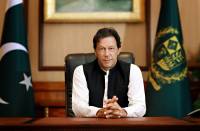Yesterday’s trade talks between officials from Canada and the United States have dramatically collapsed, thus demonstrating a stark contrast with the successful talks that Donald Trump had with Mexico’s President Enrique Peña Nieto and Mexican President Elect Andrés Manuel López Obrador. One might expect US trade talks with Canada to go smoother than those with Mexico both because Canada and the United States have more similar economies vis-a-vis the US and Mexican economy and because while Trump intends to build a controversial wall on the Mexican border he has no plans to construct a similar rampart on the border with Canada. The realities however transcend the stereotypes of inter-North American relations while also revealing that both Mexico’s outgoing and incoming leadership are vastly more pragmatic than Justin Trudeau’s government.
Immediate alarm bells ought to have been raised in Ottawa when the leading representative of Canada in the trade talks was Foreign Minister Chrystia Freeland. Under normal circumstances a government is represented by a minister for trade, commerce secretary or even a finance minister in serious trade discussions while when such talks are with a neighbour and major trading partner, the head of government is typically also directly involved even in the early stages of the talks. It therefore was always odd that while Trump had phone conversations with both President Nieto and President Elect López Obrador which ultimately resulted in a new US-Mexico trading agreement, no such lines of communication appear to have been implement between the US President and Canadian Prime Minister.
While Trump has a famously touch and go relationship with Justin Trudeau as in terms of personal politics and comportment one could scarcely imagine two less similar men, the fact of the matter is, irrespective of who is in the White House, the United States is Canada’s largest trading partner by a large margin. It seems as though the current Canadian government has been supremely naive in thinking that the status quo of friendly trading relations between the US and Canada which long predates the 1994 North American Free Trade Agreement (NAFTA) would automatically continue under a Trump administration which has set out and largely succeeded in transforming the realities of world trade. With Trump reiterating threats to withdraw the United States from the World Trade Organisation which America helped to found in 1995, no one in Ottawa should think that Trump is bluffing when he threatens more tariffs on Canadian goods as a result of the failed trade talks.
I love Canada, but they’ve taken advantage of our Country for many years!
— Donald J. Trump (@realDonaldTrump) September 1, 2018
There is no political necessity to keep Canada in the new NAFTA deal. If we don’t make a fair deal for the U.S. after decades of abuse, Canada will be out. Congress should not interfere w/ these negotiations or I will simply terminate NAFTA entirely & we will be far better off…
— Donald J. Trump (@realDonaldTrump) September 1, 2018
….Remember, NAFTA was one of the WORST Trade Deals ever made. The U.S. lost thousands of businesses and millions of jobs. We were far better off before NAFTA - should never have been signed. Even the Vat Tax was not accounted for. We make new deal or go back to pre-NAFTA!
— Donald J. Trump (@realDonaldTrump) September 1, 2018
Unlike Canada, Mexico’s leadership realised the biting reality of facing an unwinnable trade war with a surging US economy. As such, Mexico not only made a pragmatic decision but made a wise decision in re-negotiating in good faith with the US, in spite of Donald Trump’s rhetoric on Mexico and Mexicans that has earned him the ire of many Mexican citizens and many more Mexican-Americans. By being the first major trading partner of the United States to agree to a new deal, Mexico’s status in the eyes of the US has moved up several notches.
Seeing as Trump has already threatened massive tariffs on Canadian produced cars (mainly those produced by US owned General Motors and Ford), should a new post-NAFTA agreement not be reached, Trudeau may be unwittingly walking his country into a major recession by talking tough without the realistic ability to back it up. At present, trade with the United States accounts for a whopping 76% of all Canadian exports valued at $319.6 billion per annum. With Canada’s second biggest export market being the United Kingdom which only accounts for $6.8 billion per annum, it is clear beyond a shadow of a doubt that if Canada were to be hit hard by more tariffs, the country could face a substantial economic challenge. Furthermore, by targeting the car industry specifically, factories in Canada owned by General Motors and Ford could easily make the decision to move some of their operations out of Canada and back across the border, especially since Trump has promised substantial tax incentives for companies who make such moves.
Thus, while the man who champions the concept “people kind” and relaxed border policies has suddenly become an economic nationalist, he may soon find that when it comes to basic economies, he is totally out of his depth. Donald Trump has already proved that when he threatens further tariffs on a nation, including a long time US partner, he typically means it and acts fast on his threats. As a nation so utterly dependant on the US in order to sustain economic growth, Canada might find that in spite of being a fully developed industrial economy, its position vis-a-vis the US is even more precarious than Mexico’s as Mexico operates a far more investment friendly developing economy from the Chinese perspective than the highly regulated and highly developed Canadian economy.
It appears that the geopolitically inexperienced Canadian government that has alienated multiple countries ranging from Russia to Saudi Arabia is now on the verge of incurring the economic wrath of Donald Trump who in this respect needed little provocation to begin with. It would appear as though Justin Trudeau’s method of geopolitical interactivity revolves around a two pronged strategy of either ingratiating one’s self to one’s host through cringe worthy publicity stunts as was demonstrated by his visit to India or otherwise, modern Canadian diplomacy revolves around angering and provoking potential and existing partners by making insulting, undiplomatic virtue signalling statements in public that would verge on being undiplomatic even when said in private. Saudi Arabia’s current economic boycott of Canada was entirely of Canada’s making and specifically the making of the same Canadian Foreign Minister who has utterly failed in her negotiations with Donald Trump.
While Justin Trudeau is known for being fond of dancing, he has clearly danced himself into a corner in respect of a new trading arrangement with the United States. Canada’s economy cannot survive a full scale trade war with its neighbour. Donald Trump knows this all too well. It appears as though Justin Trudeau and his ministers are blissfully ignorant of this reality.



